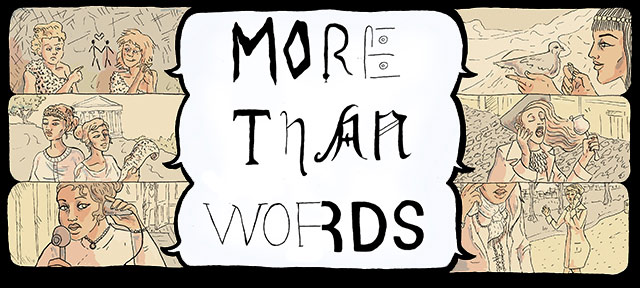
“Gay” was the first queer word I ever learned, and the first queer thing I ever called myself. Something about “lesbian” didn’t sit right with me, and I wasn’t yet aware of reclamation, of the bright side of pejoratives — the spark that happens when you turn a weapon on itself. Plus I liked the sneakiness. Gay meant happy, right? You could claim it while admitting nothing. It was a rainbow dream mask.
But even before it got the rest of its colors, this word blushed. Pleasure, joy, and other gaieties are perpetually societally fraught, and gay has the scars to prove it — it’s been punned on, leaned on, worn proudly, hidden behind, argued over, and ping-ponged across the net of respectability ever since it was invented. If words could break, gay might have a long time ago. Luckily it bent instead. Here’s the beginning of how it happened.
The most common etymology of the word “gay” has it rooted in the Proto-Indo-European root *gey- (“to go”). This evolved into *gheng- (“to stride”) which became the Proto-Germanic *ganhaz/*ganhwaz (“sudden”), and then the Old High German gahi (“quick, impulsive”). The move to Old French jai (“merry”) brought the recognizable definition and a nice modern jauntiness. Jai became gai likely due to the influence of Gothic gaheis (“impetuous”), and soon we had the Middle English gay, direct ancestor of the word we use today.
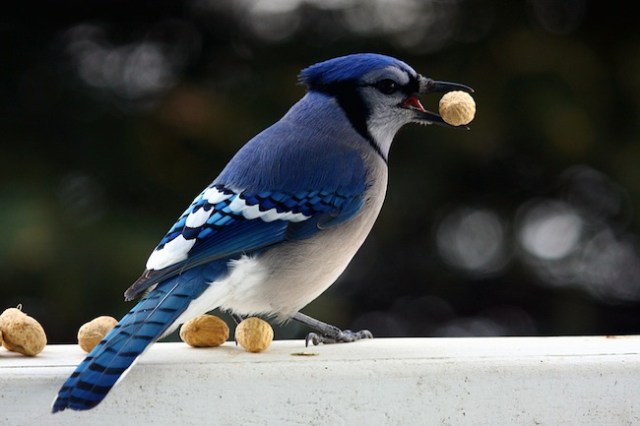
JAY, AS IN BLUE JAY, IS A COGNATE OF JAI. THIS JAY IS PRETTY JOYFUL.
Easy enough — except that etymology is an inexact science based on barely traceable exchanges that took place thousands of years ago, so not everyone agrees on what happened. Anatoly Liberman has an alternate theory that roots gay in Old High German wahi (“shining”/”beautiful”), based on a g/w interchangibility that we see borne out in word pairs like “guardian” and “warden,” or “guerrilla” and “war.” But he’s even more attached to a different explanation from the 19th century master Frank Chance. An “excellent etymologist, now almost forgotten,” Chance used to publish almost exclusively in Notes and Queries, a quarterly where scholars and hobbyists traded notes and asked each other questions — kind of like an early Formspring, but for linguistics and lexicography. In an 1861 Note, Chance took on “gay” via an analogy to the French gaîne, or “sheath,” which comes from the Latin vagina, also “sheath” (and also your bonus etymology-of-the-day).
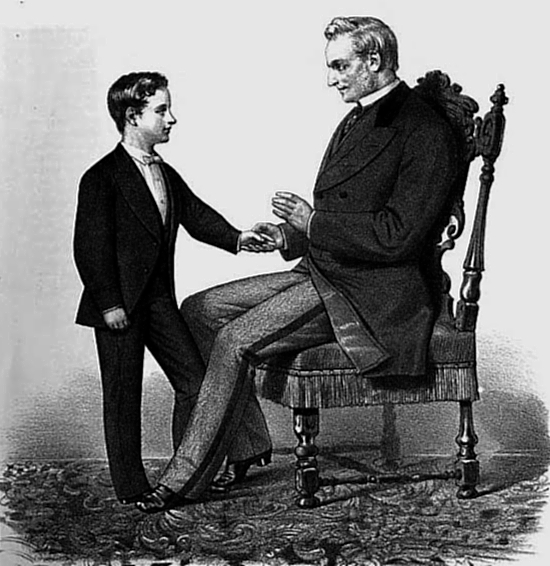
“SON, WE SHALL NAME YOU FRANK CHANCE, DOOMING YOU TO A LIFE OF GAMBLING AND/OR ETYMOLOGY”
“The g in gaîne,” Chance explains, “corresponds to the v in vagina… In a similar way, I think, our adjective “gay” might be readily deduced from the Latin vagus, or perhaps from the corresponding Italian vago, which means both wandering, roaming, and pleasant, agreeable.” About a century and a third later, German linguist Harri Meier added some evidence to the pile, listing Italian cognates like svagarsi (“amuse oneself”) and svago (“diversion”).
I have also become attached to this theory, not only because it’s more fun, but also because it means that the start of gay’s backstory involves a gradual influx of positive feeling — what semantician Stephen Ullman calls an “amelioration of meaning.” As Liberman points out, the Latin vagus often meant “flighty” or “frivolous,” which, though not the worst possible things to call someone, aren’t as sunshiney as the merriment and joie de vivre implied by “gay” — see, for example, Propertius’s Elegy V, in which a “vagis puellis” is compared negatively to Cynthia, a “docta puella” or “learned girl,” and Propertius’s perpetual muse. So somewhere over the course of its initial leap into English, gay enjoyed a rise in reputation — a fine beginning for a word that would spend the rest of its life undergoing a roller coaster ride of semantic shifts.
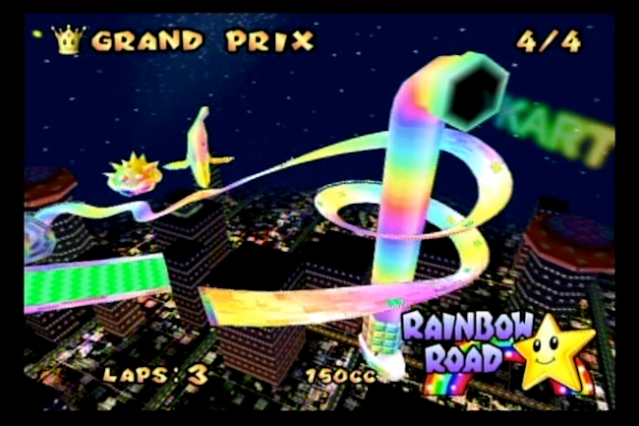
BASED ON A TRUE STORY
“Gay” first hit paper in 1325, in a transcription of a Middle English song called “Blow, Northerne Wynd.” When I started reading it, I thought it was about how the narrator would brave the northern wind to get to his beloved, who is described as semly and menskful and lossom (“seemly,” “worshipful,” and “lovely,” if you prefer boring new English words). But in the end, he’s actually asking the wind to blow his suetyng (“sweetheart”) to him, which honestly sounds kind of mean and lazy. Dave Wilton found the relevant stanza:
“Heo is dereworþe in day
graciouse, stout, ant gay
gentil, iolyf so þe iay
worhliche when heo wakeþ.
Maiden murgest of mouþ;
bi est, bi west, by norþ ant souþ,
þer nis fiele ne crouþ
þat such murþes makeþ.
Blow northerne wynd!
Send thou me my suetyng!
Blow northerne wynd! blow, blow, blow!”
(TRANSLATION: “She is precious in day / gracious, stout, and gay / gentle, jolly as the jay/ noble when she wakes. / Maiden merriest of mouth / by East, West, North and South / Neither fiddle nor crowd / Makes such abundance. / Blow northern wind! / Send me my sweetheart! / Blow northern wind! Blow, blow, blow!”)

THEY SING THIS SONG DURING PHOTOSHOOTS.
Gay is a nice-sounding, one-syllable word that rhymes with a lot of things — all the makings of a poetic mainstay. To the delight of decades of middle school English students, no one could get enough of it for centuries and centuries. Chaucer used it in 1385. Robert Mannyng used it in his “story of England,” in the late 14th century. The lyrics of “Deck The Halls” are from 1862. Shakespeare used it thirteen times in total. Here’s Iago, in Othello, written in 1603: “She that was ever fair and never proud / Had tongue at will and yet was never loud / Never lack’d gold and yet went never gay.” I’m trying to be mature here but Shakespeare makes it hard.
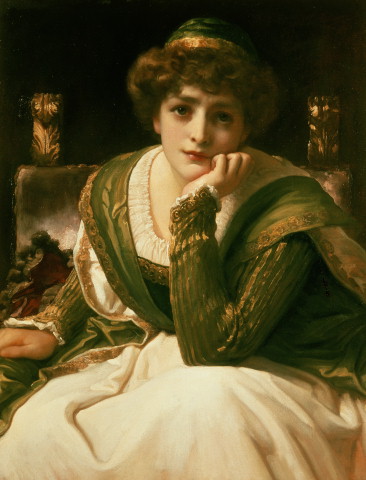
DON’T LISTEN TO HIM, DESDEMONA! YOU’RE BETTER OFF GOLD AND GAY
Over this time, though, “gay” began experiencing a “pejoration of meaning” — it’s the opposite of the aforementioned amelioration, and you use it when a word’s reputation starts going downhill. Some think this started as far back as the 14th century, but it was definitely established by the 17th, when, according to the OED, it was generally used to describe those “addicted to pleasures and dissipations.” Carefreeness had flipped back to frivolity. You can even see it in the above Shakespeare, as Iago uses “gay” to mean “flashy” and sets it in parallel with pride and loudness, two then-undesirable traits). This frivolity developed into a general lack of inhibitions, and often referred to sexual carefreeness — by at least 1799, a “gay man” was a womanizer, a “gay woman” a prostitute, and a “gay house” a brothel.
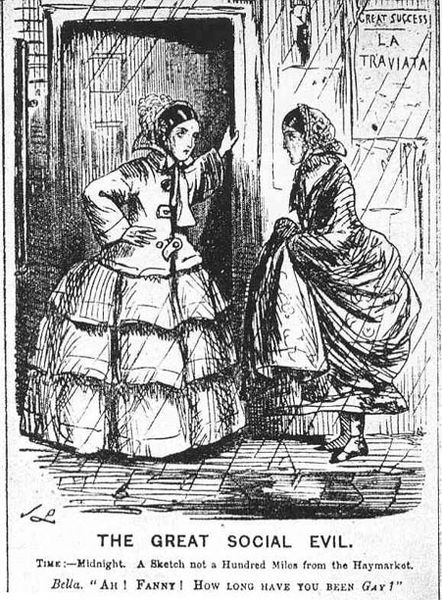
A DIFFERENT KIND OF COMING OUT (VIA PUNCH MAGAZINE ARCHIVES)
In a nice return to its roots, “to go gay” was to live a life of hedonism. For proper usage, see this sentence, from Edward Montague Compton MacKenzie’s Carnival, that was far ahead of its time:
“After dinner Jenny went back to Hagworth Street, and had a flaming quarrel with her mother, who accused her of “going gay”; demanded to know how she dared put in an appearance dressed in another woman’s clothes; insisted she was to come home immediately after dinner; forbade a hundred things, and had the door slammed in her face for the advice.”
While this meaning became more prevalent, another now-familiar one snuck up alongside it. Next time we’ll talk about when gay started meaning what it does now — and take another few dips up and down the semantic roller coaster.
This has been the thirty-first installment of More Than Words, where I take queer words of all sorts and smash them apart and see what makes them tick. Every week I dissect a different word, trying to figure out where it came from, how it has evolved, where it might be going, and what it all means. It’s like reading the dictionary through a prism. Feel free to send word suggestions to [email protected].
Header by Rory Midhani



Heh. Shakespeare makes it hard. heh heh.
Kudos Kara!!! I never realized how the terms “lesbian” and “gay” are perceived so differently by society. Thanks again for broadening my horizons. I’m not sure how you feel about emoticons but I’d like to give you a :)
“Wandering, roaming, and pleasant, agreeable.” That is exactly how I describe my vagina.
Real talk, I completely agree with you wrt to the word “lesbian.” I had such a difficult time accepting it as a descriptor. There’s something about the “z” sound that almost makes the word sound sinister, like you’re hissing, and the “n” at the end closes the word off. It felt cold, foreign, and unwelcoming. Whereas, when you speak the word “gay,” your face opens, almost like witnessing a happy surprise. It felt much safer. Now, the word “lesbian” doesn’t bother me at all, and I prefer it as a noun rather than an adjective.
That was fascinating read, I can’t wait to read part 2(and 3 if there is one).
Yes! Etymology! I’m excited to read part two.
I am coming around to the word “lesbian.” I think it’s because I’ve started saying “les be real” and “les be honest” a lot. I still prefer dyke and queer though.
The story of “gay” was quite interested, but what particularly caught my attention was the aforementioned aversion to “lesbian”. I think there might be a number of factors conspiring against this word.
If you think of most other descriptors people “on the rainbow spectrum” call themselves, they tend to be adjectives. “Hi, my names is Leah and I’m gay/I’m queer/I’m trans/I’m bi”. On Ellen, way back when, Ellen’s mother, struggling to come to terms with her daughter’s newfound sexuality, says awkwardly that her “daughter is… a gay” – to a comic effect, obviously. Nouns don’t tend to work well here… somehow, nouns seem to be too much of a definition of a person, summing them up, reducing their personality to their sexual preferences or at least highlighting it as most relevant at the moment of discussion. Compare a man saying “oh yeah, I’m gay” to his saying “I am a gay man” or “I am a homosexual” or even (if he’s in reclamation mode) “I am a faggot”. The former is just (or at least intended to be) a casual bit of info about a person. The latter seems more like a start of some weighty speech on gay rights.
Yet, “lesbian” is rarely, if ever, used as an adjective when applied to people. Sure, you have lesbian clubs, gathering, centres etc… but not lesbian people, it seems. And people – especially in our misogynist culture – are hesitant to brand themselves in this way. It’s one thing to say: “Hey, I’m Mary, I go to University of So-and-so, I like strong espresso, and, by the way, I’m queer”. It’s another to say “I’m a lesbian”. “Oh,” go the agents of Male Gaze, “she’s a dyke.” Boom, case settled — that’s all they need to know about you to label, classify and potentially dehumanize you. (Of course, they can do that anyway, no matter what you call yourself. But by priming them with the “right” descriptor, you might reduce the chances – or at least you might be hoping you are doing that.)
Also, lesbian is the only common and allegedly neutral LGBTQ+ descriptor that I can think of that applies specifically and only to women. So, by claiming to be queer or gay you feel you’re joining a biiig happy rainbow bandwagon that, due to the mix of sexes and genders, at the very least won’t be a target of pure, unadulterated misogyny, only to one of its offshoots – homophobia. But say “lesbian” and in addition to general homophobia you’re making yourself more vulnerable to attacks specifically against non-straight women or even women in general.
And, finally, while it is indeed a matter of taste, I agree that “gay” just rolls off the tongue a little easier than “lesbian”.
It’s little wonder few women call themselves “lesbians” these days. :(
Wow, that is a terrific analysis!
Clearly, you should be promoted to Professor of Linguopolitics at the University of Interwebs.
I award you ten internets.
This series is the bessssttttt. I’m giggling over the irony of a gay man being a womanizer.
I too giggled… :D
Unfortunately, my experience is gay men are just as bad and sometimes worse than straight men in terms of feeling entitled to my body. Sure, straight men verbally harass and visually objectify me more, but they don’t grope me nearly as often as gay/bi men I barely know.
This was a really interesting read!
I remember being really confused, and, after I understood it based on context, really tickled, about the use of this word in Tipping the Velvet.
Because prior to our Nan having All The Lesbian Sex It Is Possible To Have with her…patron? client? rich lady sex mistress?…and dressing up like a fancy man, and after she broke up with her First Girl, she “went gay” – meaning, in her case, she pretended to be a man in order to blow dudes for money. But she wasn’t exactly a “gay girl” in the parlance of her times, because “gay girls” were gay because they had sex with men for money while still acting as women. Even though some of them were “gay” in our current sense of the word, having sex with women for their own pleasure, rather than for someone else’s money. So…Nan “went gay” and had sort of kind of what appeared to be gay-as-in-homosexual sex for money, but with men, and she was not a man, she just pretended to be one, but most “gay girls” were gay because they had decidedly-not-gay-in-our-sense sex with men (for money).
Basically Nan was being “gay” only when she wasn’t being a lesbian, which is hilarious and awesome and thank you Sarah Waters.
Fingersmith is still the best though.
I continue to love everything about this column always. Can we bring “menskful” back please?
Also, somewhat off-topic, is anyone else having trouble with the thumbs-up buttons at the top and bottom of posts? I click and click and the number doesn’t change.
This is so so interesting! It makes me wonder if in a century or so linguists will talk about “that time in the 21st century when everyone started using gay as a synonym for bad” as a pitstop in the evolution of the word.